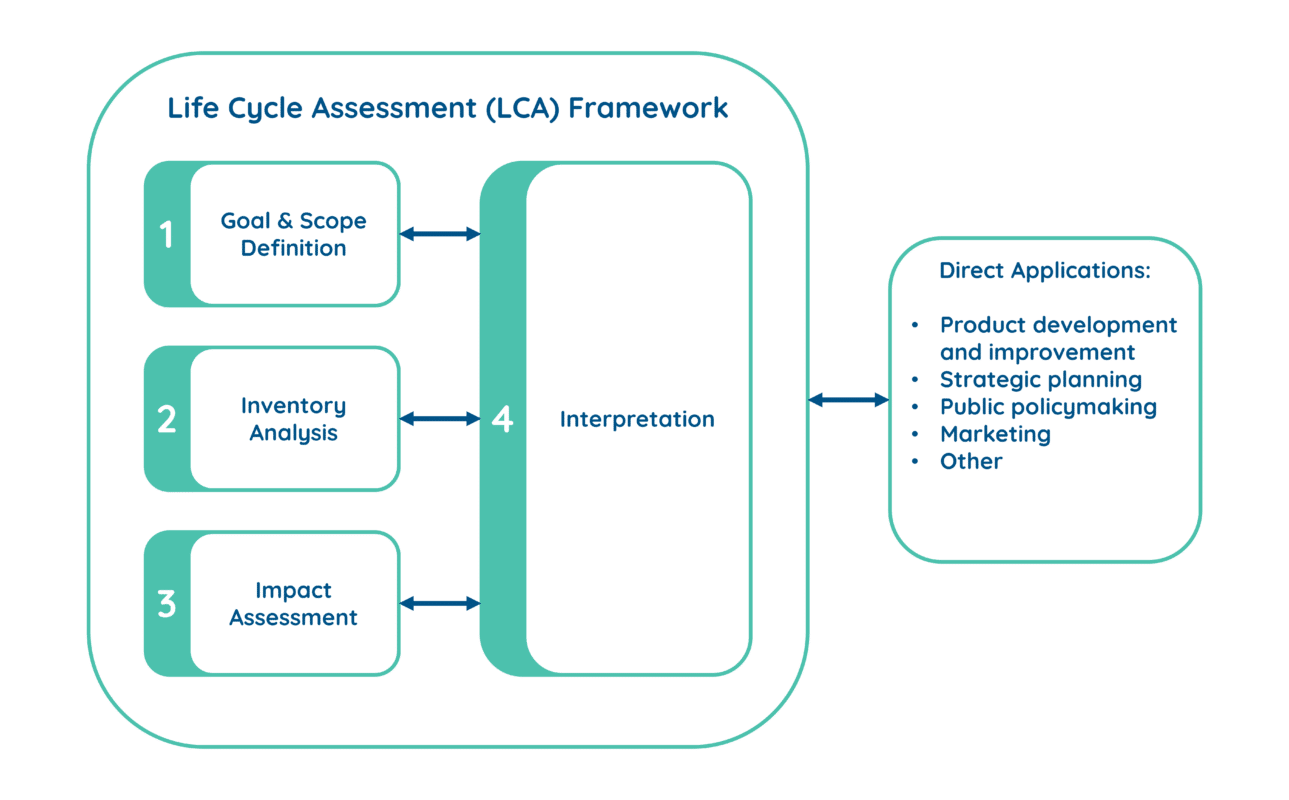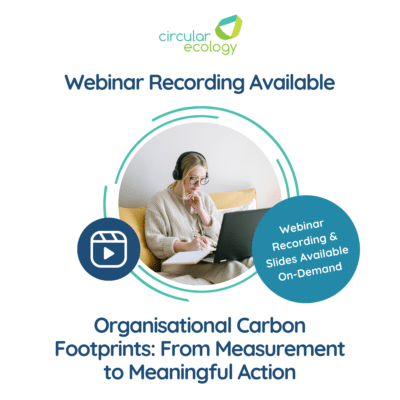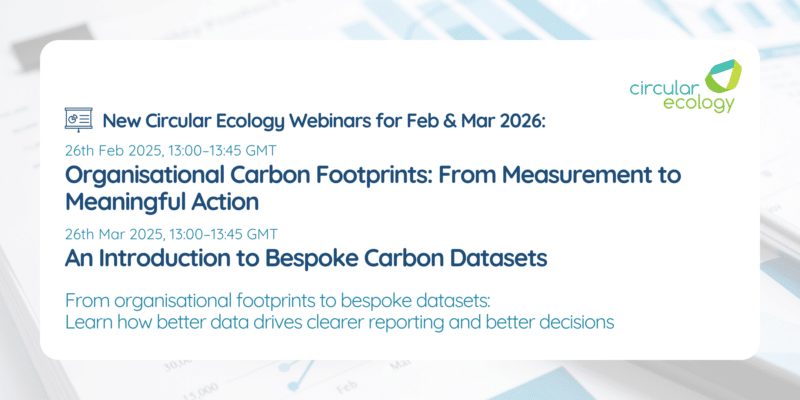Life Cycle Assessment (LCA)
A life cycle assessment (LCA), also known as life cycle analysis, typically assesses the full life cycle impact of a product, activity or service and against often 20 environmental impact categories, such as carbon , water depletion, eutrophication, toxicity, and more.
Life cycle assessment is a sophisticated decision support tool that can be used to identify the environmental benefits of your products, buildings, supply chains or services. A robust life cycle assessment would adhere to the International Standards on LCA:
- ISO 14040:2006 – Environmental management – Life cycle assessment – Principles and framework; plus
- ISO 14044:2006 – Environmental management – Life cycle assessment – Requirements and guidelines
These two standards underpin all good studies on LCA.
According to the ISO standards there are four main stages of an LCA. These are shown in the diagram below:

The four stages are described further below:
- Goal and scope definition: Before starting an LCA it’s important to define a clear goal and scope of study. This will be used to select a robust calculation method.
- Inventory analysis: Once the goal, scope and method have been determined the important stage of inventory analysis can begin. We will work with you to collect primary data from your supply chain, or will work to collect the most robust data in the literature. we need to understand the consumption of all materials and energy and creation of waste associated with your product (system). We can then use this data to build a sophisticated LCA model.
- Life cycle impact assessment: With the data collected and a model built we can start to produce LCA results. We can analyse 20 different LCA impact categories, including energy, carbon, water, toxicity, eutrophication, acidification, metal depletion and more.
- Interpretation (conclusions and recommendations): This is the key output of the life cycle assessment. The results will be analysed in detail to determine the impact hotspots and the key environmental impact categories. These can then be used to make recommendations for improvement.
LCA can be done for for materials, products, buildings, services and supply chains. Typically LCA studies fall into one of the types below:
- Streamlined LCA: A streamlined LCA relies heavily on secondary data and professional life cycle assessment software to produce rapid results. This streamlined approach can produce results quickly and is therefore useful for initial hot-spotting and testing conclusions before embarking upon a detailed study. Streamlined LCA is useful to determine if a full LCA is needed.
- Detailed LCA: A detailed life cycle assessment is required for the maximum robustness, or if the study is comparative and to be released in the public domain.
- LCA training: For further information on LCA training we have online and workshop based courses.
- LCA peer review: To achieve maximum credibility a peer review is recommended. LCA is a detailed field. If an LCA is comparative and to be released in the public domain the ISO standards on LCA require that independent peer review is completed.
An LCA covers many different environmental impacts. However, it also includes carbon footprint or embodied carbon results. The results for carbon are still typically the indicator of most interest. The are also useful to support claims of carbon neutrality or net zero carbon.
Please use the form below if you would like to reach out to us regarding these services:
UK Government Releases Final UK Sustainability Reporting Standards (UK SRS)
The UK Government has published the long anticipated UK Sustainability Reporting Standards (UK SRS S1 [...]
Feb
Webinar Recap: Organisational Carbon Footprints: From Measurement to Meaningful Action
In February’s free webinar, Jon Burrow (Head of Carbon Accounting) and Joe Rouse (Senior Consultant) [...]
Feb
Upcoming Webinars: Carbon Datasets, Org Footprints, EPD Production
Circular Ecology are pleased to announce two upcoming free webinars, offering practical guidance on two [...]
Feb
EU Introduces First Voluntary Certification Rules for Permanent Carbon Removals
The EU has introduced the “world’s first” voluntary rules for certifying permanent carbon removals under [...]
Feb




